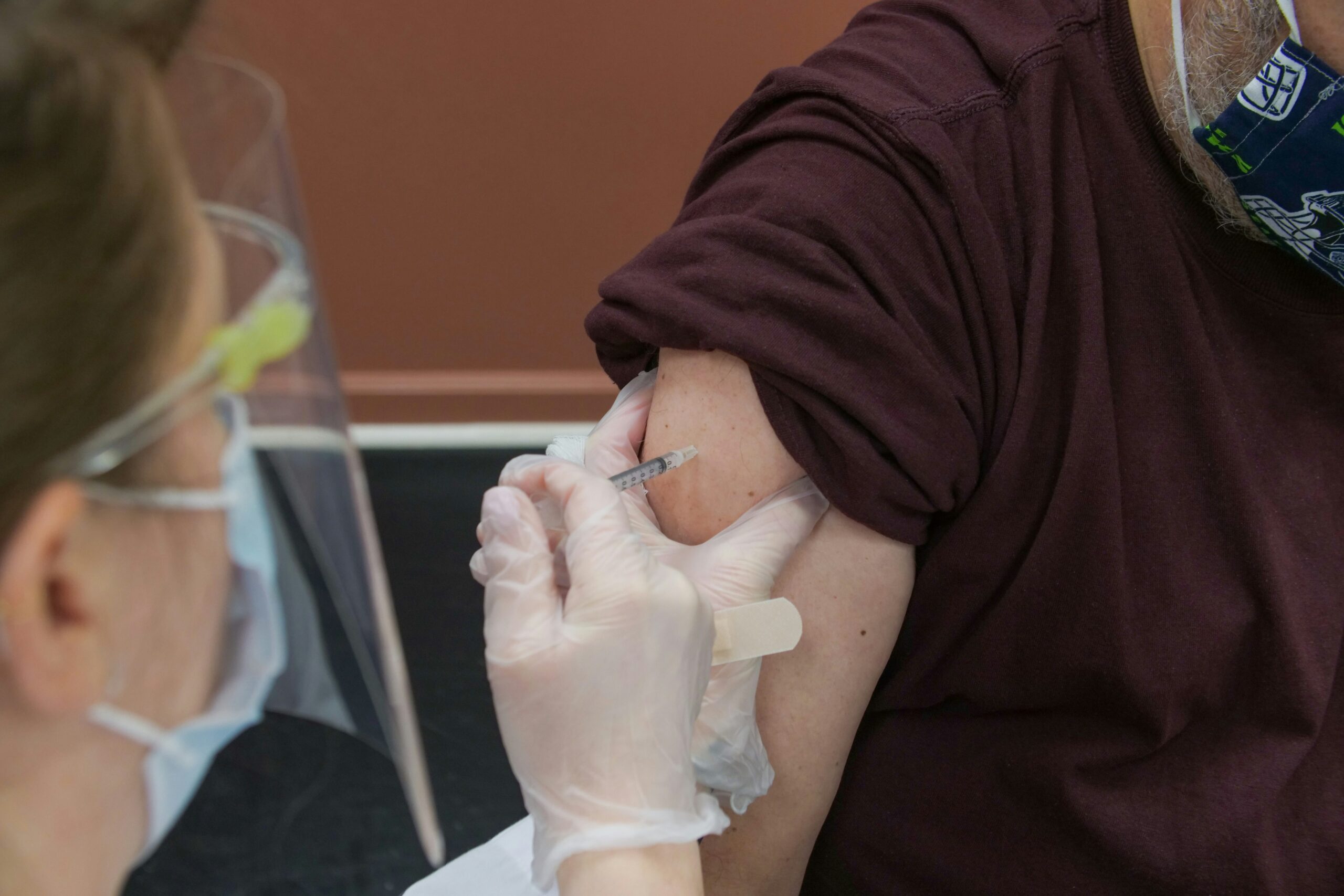Why Healthy Boundaries are Essential In Recovery
Setting boundaries is an important life skill, especially for people in recovery from addiction. We all have interpersonal boundaries, and they vary from person to person. What may be appropriate behavior vis-à-vis your romantic partner could be way out of line when interacting with a stranger. These rules of appropriate behavior also vary from culture to culture and are usually acquired during childhood.
Boundaries Fade During Active Addiction
Boundaries allow you to take care of yourself and live a value-based life. In the realm of addiction, these established rules of engagement are frequently ignored or willfully broken. The priority of addicted people is the continuation of substance use, not respecting other people’s boundaries—or their own for that matter. Addiction is often defined as compulsive substance use despite negative consequences. When addiction takes over, users frequently don’t care about a value-based life or taking care of themselves. They will lie and manipulate, and sometimes even commit crimes to obtain more of the substance to which they are addicted. They might trade sexual favors for drugs, which is another serious boundary violation. All their activities are focused on acquiring the next drink or dose of their drug of choice. People with severe substance use disorders not only disregard the boundaries of fellow humans but also don’t care about their own boundaries. This pathological lack of boundaries is often based on low self-esteem. “We see people in rehab who don’t respect themselves enough to think that they deserve to set boundaries with other people, that they’re not allowed to ask for what they want because they’ve done so many things to other people in their lives,” says Dino Liverano, former clinical manager of the men’s facility at Lakeview Health. Many are deeply ashamed of what they have become, yet they don’t know how to live without drugs and alcohol. A lack of healthy boundaries could also be the result of growing up in a dysfunctional family. Growing up in a household with an abusive or addicted parent is certainly not conducive to learning healthy boundaries or cultivating self-esteem. “Studies of drug addicts repeatedly find extraordinarily high percentages of childhood trauma of various sorts, including physical, sexual, and emotional abuse,” writes Canadian addiction expert Gabor Maté in his seminal study In the Realm of Hungry Ghosts. If the parents of a child with a substance use problem are not abusive or addicted themselves, different boundary violations frequently ensue. In their frantic attempts to stop the substance abuse, they often react with threats and punishments. But lecturing people in active addiction about negative consequences frequently fails as the addicted brain tends to downplay negative outcomes. Another reaction might be to protect the addicted person from the natural consequences of his behavior. Instead of confronting the disease, family members try to hide it from outsiders, making excuses for the addict’s behavior or bailing her out of trouble. Enabling behavior usually involves boundary violations by both sides. The addicted person manipulates the loved one by dishonestly promising “not to do again, if you help me just one more time.” To cover for the addicted person, the enabler often has to break their own moral code, for example, by not telling the truth. In any case, the family members of the addicted person will be severely affected by the disease of their loved one. The longer the problem is left untreated, the worse it gets.
Reacquiring Healthy Boundaries
Effective addiction treatment should include rebuilding healthy boundaries—for all parties involved. The family has a central role to play in the treatment of substance use disorders. Parents and life partners have to help addicted loved ones by being compassionate supporters, ideally within the framework of professional addiction treatment. At Lakeview Health, they can participate in a three-day family workshop with family members of other patients. “Sometimes, they hadn’t realized that they can contribute to the solution,” explains former Lakeview family therapist Ken Wynn, “or that they should cease to do things that contribute to the problem.” Workshop participants will leave equipped with recovery resources, information, and knowledge that will support the continued recovery of the patient. This includes instruction about boundaries. “A lot of the boundaries we’re teaching are about respecting each other. That means being honest with one another but also being assertive about your own needs,” says Sarah Franklin, former clinical manager of the women’s program, The Rose of Lakeview.
At Lakeview all treatment across the entire continuum of care is infused with three core values:
- Clear and honest communication
- Respect and trust of self and others
- Accountability for self and willingness to hold others accountable
Clear and honest communication is crucial. Boundary issues differ for each individual and can range from people being “too intrusive” on the one hand to “too distant” on the other. “It’s a huge topic for a lot of people in treatment,” says Liverano. “In the men’s addiction treatment program, we have patients who are extremely guarded because they have been hurt so much, so they put up extremely rigid boundaries. They won’t let anyone in. On the other hand, you also see people who are very codependent. They don’t know how to be comfortable without being in a relationship, so they have very weak boundaries. Basically, they don’t know how to say no to anybody, and they go out of their way to please other people.” Both attitudes are not helpful in recovery. “It’s really important to work on that because if you can’t set boundaries, you can’t have healthy relationships,” says Liverano. “You have to be able to respect yourself in order to be able to ask other people for the things that you need to be a healthy person.” It’s not an easy task to determine where healthy boundaries should be drawn. It is a fairly individualized endeavor. “A lot falls back on the patient. It’s our job to help them learn about themselves, to find out what they need to feel safe,” says Franklin. “Everybody’s boundaries are different.” At Lakeview Health, patients can participate in specialty groups dedicated to relationships and boundary setting. “Especially in trauma groups, it’s important to explore what are acceptable boundaries,” says Franklin. Many patients with substance use disorders are trying to numb emotional pain caused by horrific violence, sexual assault, or other traumatic experiences. The resulting lack of healthy boundaries often leads to further traumatization and dysfunctional relationships. Many of the boundary issues of such patients must be understood in that context, and all staff at Lakeview have been trained in trauma-informed care. Gender-separate treatment facilities for women and men—like The Star and The Rose at Lakeview—can also make a big difference. “At the beginning of their stay in rehab, many men display boundaries that are too rigid, shutting themselves off from other men,” explains Liverano. “Women tend to share their emotions more naturally, while men perceive that as a sign of weakness.” While women may share more naturally and can provide mutual support, the presence of men can be a problem. Many women with substance use disorders have been traumatized by men, while some women are too focused on the opposite sex, having manipulated men during active addiction on many occasions. Both groups have to explore where healthy boundaries with the opposite sex should be established. This can be done more effectively with gender-separate treatment.
Maintaining Healthy Boundaries in Recovery after Rehab
Once patients are discharged from rehab, they should diligently observe the new boundaries they discussed during treatment. “The biggest boundary issue after discharge is allowing unsupportive people back into your life,” says Ashley Harms, former manager of the alumni services department at Lakeview Health. “This includes parents, spouses, and friends. Sometimes, we encounter family members who don’t understand addiction, and they continue to blame and shame the person in recovery. Or we have alumni going back to the same situation, going back to a bar in early recovery, not realizing that might be a trigger to drink alcohol or use drugs.” Healthy boundaries are clear, specific, and reasonable. When you talk with your ex-wife about financial problems, you don’t necessarily have to accept your addiction as a reason to pay more support. Clearly established boundaries will make it possible for you to tell a friend you will come skiing with him, but you will not go to a bar afterward. Should people be unwilling to respect boundaries you have established based on self-respect and core values, you should probably end the relationship. “Setting boundaries is not only for rehab,” says Harms. “It’s a permanent thing, but it’s not linear. People in recovery sometimes have unrealistic expectations. They think, ‘I’m out of treatment. I’m going to work the steps. I’m gonna get better and I’m going to help others.’ They think they are looking at a linear progress, but in reality, there will be ebb and flow. Sometimes, people are really good with their boundaries, but then they meet someone who is not that healthy for them, and they start neglecting boundaries again.” With time, people in recovery usually learn to be mindful of their boundaries. If they learned to set limits, they will let other people know how far they can go. They will be assertive and speak up without being aggressive if they feel that someone is ignoring their boundaries. And they will be mindful of other people’s boundaries. “Boundaries are key to having healthy relationships, and having healthy relationships are key to being a healthy person,” says Liverano.




